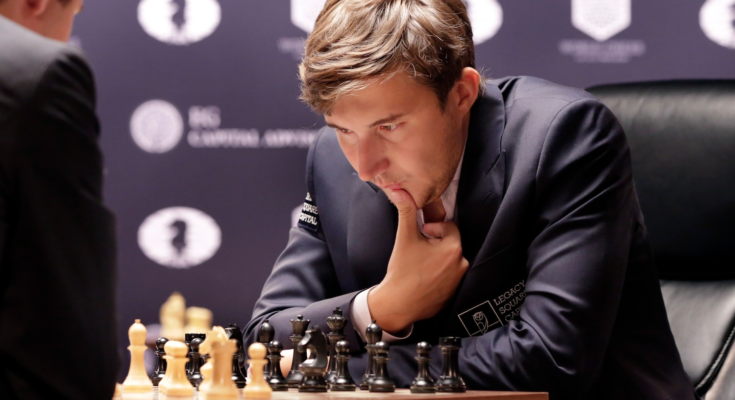Global chess officials said his conduct breached the sport’s code of ethics by casting the game in “an unjustifiable, unfavorable light.”
2/2 My answer is simple. I am on the side of Russia and my President. No matter what happens, I will support my country in any situation without thinking for a second!
— Sergey Karjakin 🇷🇺🇷🇺🇷🇺 (@SergeyKaryakin) March 10, 2022
In announcing its decision Monday, the International Chess Federation cited the “considerable number of reactions on social media and elsewhere, to a large extent negative,” toward the opinions expressed by Karjakin regarding the ongoing military conflict.
The international organizing chess body has traditionally shied away from politics. But in a historic move this month it pulled tournaments from Russia and Belarus in response to the invasion.
Russian players have long played a dominant role on the global chess scene. During the Soviet era, grandmasters such as Garry Kasparov and Anatoly Karpov were treated as celebrities. Today Russia boasts some 239 grandmasters — by far the most of any country.
The 32-year-old Karjakin, who was born in Crimea and represented Ukraine until 2009, on Monday responded angrily to the six-month ban by saying on Telegram that it was “expected, but no less shameful,” adding that “the basic principle that sport is out of politics has been trampled.”
Karjakin said he did not regret expressing his public support for Putin, the Russian people and the army. “First of all, I am a patriot of my country, and only secondly — an athlete,” he wrote.
In a separate ruling Monday, the International Chess Federation decided not to sanction another Russian chess player, Sergei Shipov, saying his statements were “of a slightly different and less provocative character” and — because he is less well known — he had a “less powerful platform” to negatively impact the game with his views.
In addition to pulling tournaments, including the prestigious Chess Olympiad, the federation also said this month that Russian and Belarusian players will not be allowed to display their flags in tournaments and that the federation will terminate all sponsorship deals it holds with Russian and Belarusian state-owned enterprises.
Julian Mark contributed to this report.


